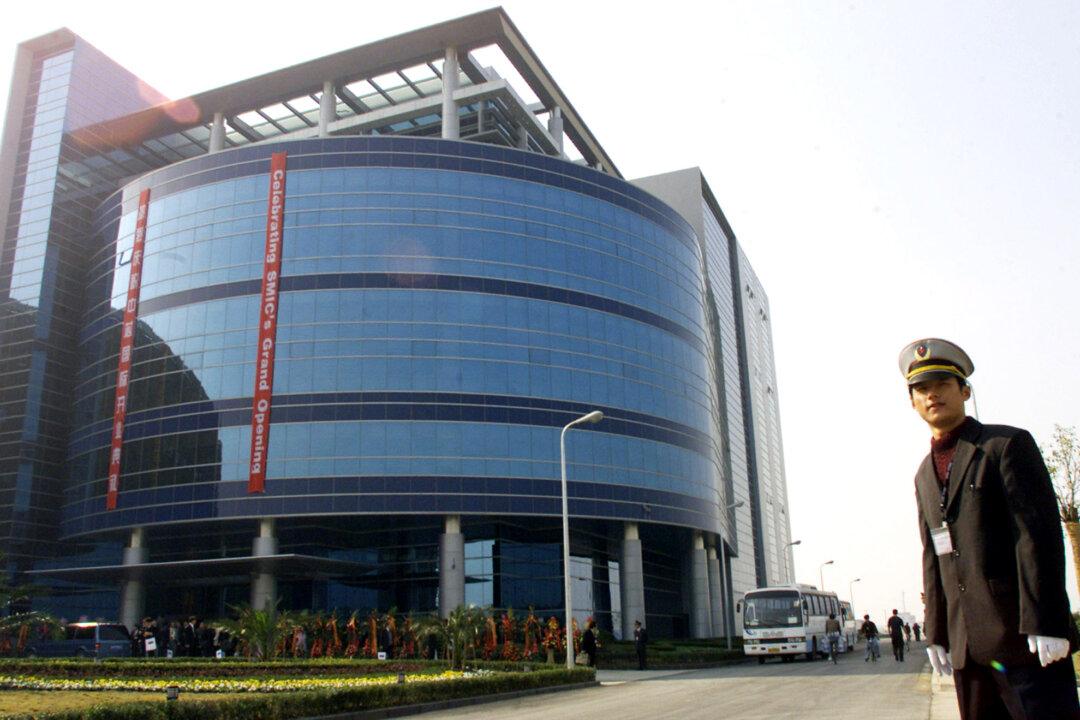China’s biggest contract chipmaker SMIC saw its shares plunge by more than 4.5 percent on the Hong Kong Stock Exchange (HKSE) on Oct. 5, one day after the company acknowledged that it was now facing U.S. export restrictions.
Shares of Semiconductor Manufacturing International Corp. took a nosedive immediately after the HKSE opened on Monday, dropping more than 6 percent to reach HK$16.88 ($2.18) about an hour after trading started. The shares eventually clawed back to close at HK$17.28 ($2.23) at the end of trading day.





